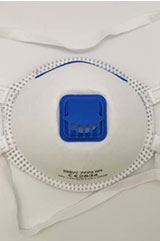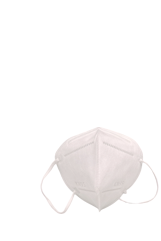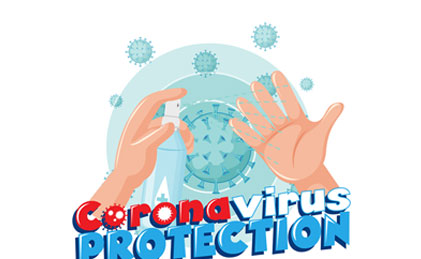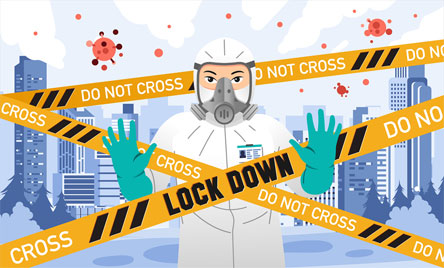Don't Do These Things when Wearing a Mask!
Currently, it is a critical period for the prevention and control of the epidemic in winter and spring. Last week, Hangzhou Center for Disease Prevention and Control observed the mask wearing situation of 5,650 people and warned, "The mask cannot be taken off! Anti-input and anti-proliferation cannot be relaxed."
Wearing masks is one of the most important and effective ways to prevent the respiratory infections. However, it is not enough to "block off" the virus by wearing masks. Previously, a confirmed patient in Shijiazhuang was wearing masks every day, but he was still infected. Why?
The CDC experts point out that there is still a risk of infection if you only wear a custom medical face mask but fail to wash your hands frequently or touch your face with unwashed hands.
Yesterday, Hangzhou CDC selected two libraries to carry out spot observation. The findings suggest that these "small actions" which increase the risk of infection occurred frequently.
Ⅰ. Most people have "small actions" and children are more "unbearable"
The stuff of Hangzhou CDC conducted 20-minute observations on adults and children reading in the two libraries respectively. A total of 59 people were observed, including 37 adults and 22 children.
There were not too many people in the reading rooms. All the readers wore surgical disposable masks and sat apart consciously.
During the 20-minute observation period, a middle-aged man touched his nose nine times: at 10:02, 10:05, 10:07, 10:08, 10:11, 10:13, 10:17, 10:18 and 10:20. In the end, maybe he felt so stuffy that he pulled off his mask.
While another young lady kept her chin in her hands within the 20 minutes. And she rubbed her eyes twice: at 10:15 and 10:24.
In the children's reading room, all the readers also wore masks. While children were reading quietly, parents were watching their phones in the sofa area.
A pupil-like boy scratched his face ten times: at 15:00, 15:01, 15:02, 15:04, 15:07, 15:10, 15:13, 15:15, 15:18 and 15:20. And he rubbed his eyes twice: at 15:05 and 15:16.
A male parent picked his nose at 15:25.
After the observation, the stuff of Hangzhou CDC aggregated the data.
During the 20-minute observation period, 26 adults and 19 children touched their noses, touched their faces and rubbed their eyes, accounting for 70.3% and 86.4% respectively, 76.3% in total. In addition, there are actions such as scratching the head.
Among these actions, touching the nose was the most common, occurring 3 times or more, accounting for 22.0%. Followed by touching the face, occurring 3 times or more, accounting for 15.3%. Rubbing the eyes came the third, occurring twice or more, accounting for 8.5%.
Ⅱ. Both washing hands frequently and wearing masks are very important
For common people, washing hands frequently is nearly as important as wearing masks in preventing the invasion of infectious diseases. It is proved that apart from droplet transmission, the virus can also be infected and spread through contact with hands, and then by rubbing eyes, lifting cheeks and touching nose, etc.
In the observation tests, it is found that most people tend to have inadvertent small actions. Especially when they are immersed in work or study, these small actions will be exposed inadvertently.
In addition, the CDC experts reminded: If you wear a mask but remove it and spit on the ground, if you wear a mask but take it off when sneezing or coughing, or touch your child's mask, face or hair without washing your hands, you may even become a spreader of the virus.
Therefore, to prevent virus infections, especially to prevent virus infections transmitted by coughing, sneezing and other droplets, hand washing is the principal measure.
Ⅲ. Wash your hands in these situations in daily life
1. When hands are contaminated by respiratory secretions, such as after blowing your nose or sneezing.
2. After touching public facilities, such as handrails, door handles, elevator buttons, public phones, sports equipment, etc.
3. After going out or shopping.
4. After returning from the hospital.
5. After taking public transportation, such as taxis, buses, subways, etc.
6. Before, during and after preparing ingredients. And before preparing milk powder for children.
7. After playing with pets and cleaning pet faeces.
8. Before rubbing your eyes and before taking off or wearing your glasses.
9. After touching express items, coins, etc.
10. After going to the toilet.




